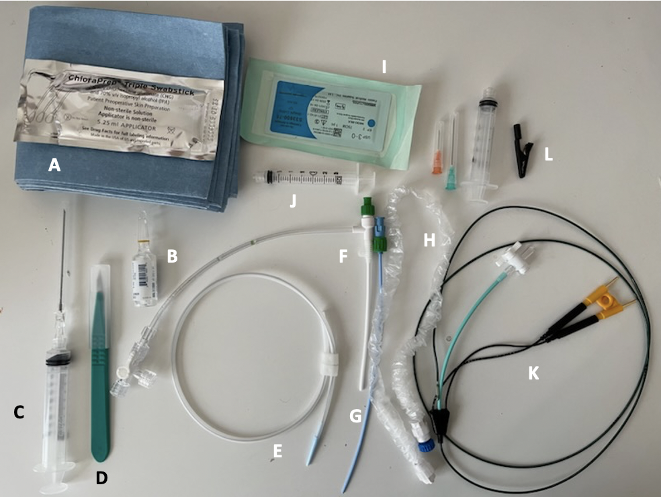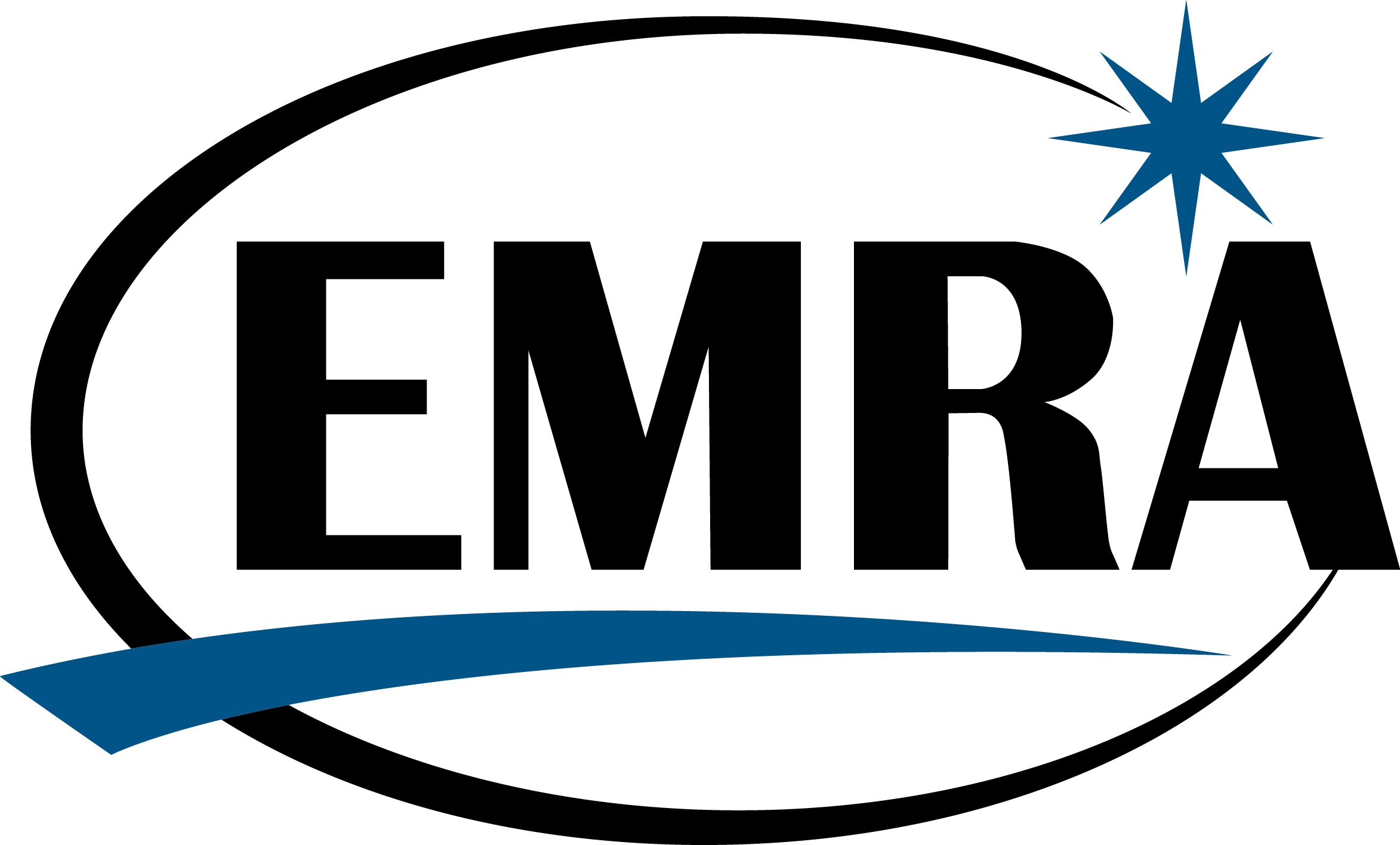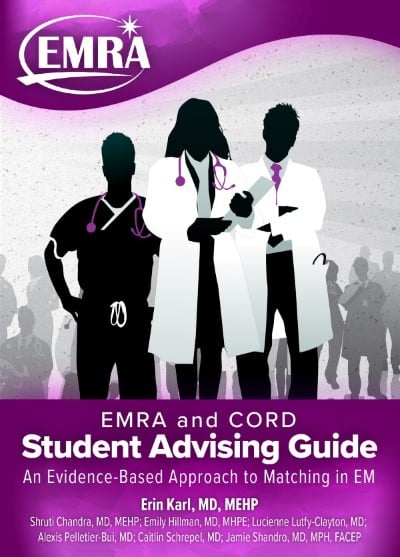Reading Recommendations
We searched far and wide to find select articles (& videos!) that you can read in your spare time. Then we distilled the list to the key essentials. Below, find our reading recommendations for every stage in medical school, residency and beyond:
These articles will help you understand the core educational resources in EM and the personal characteristics that make you a good fit for the field.
The Outstanding Medical Student in Emergency Medicine
The core professional and personal characteristics that EM residency programs are seeking in students, both during the EM rotation and when applying to residency. Written by Stanford Emergency Medicine Residency.
(Note: while this article was written in 2001, it still offers excellent advice for all aspiring medical students)
Dr. Gus Garmel’s recommended textbooks, readings, and resources for Emergency
Medicine students and residentsDr. Gus Garmel outlines the key educational resources relevant to Emergency Medicine. Do not try to read them all, pick what works and go with it!
Dr. Thomas Perara, M.D., program director at Jacobi/Montfiore and Mary Hannon, M.D., an alumnus of the program discuss what excites them about the field of EM.
Great video for anyone considering the field of emergency medicine.
Pre Clinical Years
Lotfipour S, Luu R, et al. Becoming an emergency medicine resident: a practical guide for medical students. Journal of Emergency Medicine. 35(3):339-44, 2008 October
This step by step guide for medical students discusses important tasks that must be accomplished throughout medical school by those hoping to match in EM and the importance of board scores, dean’s letters, grades, and letters of recommendation.
Read NowPitre CJ. The unique educational value of emergency medicine student interest groups. Journal of Emergency Medicine. 22(4):427-428, 2002 May
This article outlines the benefits of a successful EMIG and suggests activities for it.
3rd Year
Windish DM, Paulman PM, et al. Do clerkship directors think medical students are prepared for the clerkship years? Academic Medicine. 79(1):56-61, 2004 January
This article defines six areas of competency that students need before starting a clerkship: communication, professionalism,history/exam, life cycle, epidemiology, and care systems. It finds that 30-50% of clerkship directors do not believe that students are sufficiently prepared in these areas for clinical clerkship work.
Wenrich M, Jackson MB, et al. Ready or not? Expectations of faculty and medical students for clinical skills preparation for clerkships. Medical Education Online. 15. doi: 10.3402/meo.v15i0.5295. 2010 August
This study outlines the expectations of clinical skill for medical students entering clerkships and the discordance between faculty and student expectations.
4th Year
Sub-Internships
Davenport, C, Honigman B, Druck J. The 3-Minute Emergency Medicine Medical Student Presentation: A Variation on a Theme. Academic Emergency Medicine. 15(7):683-687, 2008 July
This is THE article you must read before giving any oral patient presentation in the emergency room.
Burdick WP, Jouriles NJ, et al. Emergency Medicine in undergraduate education. Academic Emergency Medicine. 5(11):1105-1109, 1998 November
This article expounds on the key EM competencies that the authors believe should be required of all medical students, including BLS, airway & cardiovascular support, diagnosis & treatment of common acute problems, and assessment of the “undifferentiated patient.”
Manthey DE, Ander DS, et al. Emergency medicine clerkship curriculum: an update and revision. Academic Emergency Medicine. 17(6):638-43, 2010 June
The Clerkship Directors in Emergency Medicine have updated the standardized 4th year EM clerkship syllabus published in 2006 to reflect lessons learned through experience with the current curriculum and changes in guidelines.
Letters of Recommendation
Keim SM, Rein JA, et al. A standardized letter of recommendation for residency application. Academic Emergency Medicine. 6(11):1141-1146, 1999 November
THE original scholarly article describing the SLOR.
Applicant Considerations
Perina, DG, Colier RE, et al. Report of the task force on residency training information (2010-2011), American Board of Emergency Medicine. Annals of Emergency Medicine. 57(5):526-534, 2011 May
Provides baseline data on the number of emergency medicine residency positions, locations, and resident characteristics such as gender, country of origin, and EM board pass rate.
Hayden SR, Hayden M, Gamst A. What characteristics of applicants to emergency medicine residency programs predict future success as an emergency medicine resident? Academic Emergency Medicine. 12(3):206-210, 2005 March
Examines the factors most predictive of success as a resident at UCSD EM residency. The two most important predictors were medical school attended and “distinctive factors” such as athletics, student government, etc. Strength of Dean’s Letter was also a major predictor.
Deiorio NM, Yarris LM, Gaines SA. Emergency medicine residency applicant views on the interview day process. Academic Emergency Medicine. 16:S67-S70, 2009 December
EM residency applicants were surveyed to determine the most influential portions of interview day.
Laskey S, Cydulka RK. Applicant considerations associated with selection of an emergency medicine residency program. Academic Emergency Medicine. 16(4):355-359, 2009 April
Discusses the variables that influence medical students when choosing an EM residency program and determine their satisfaction with that residency choice.
These are the topics to review before residency interviews – high-yield information to discuss with your interviewers.
EMRA and CORD Student Advising Guide: An Evidence-Based Approach to Matching in EM
Published: May, 2023Medical students are applying to twice as many residency programs as they were a decade ago – straining their time, their stamina, and their bank accounts. What does the data show to be effective for matching into emergency medicine? EMRA and the Council of Residency Directors in Emergency Medicine have broken it down for you. This book – free to all EMRA student members and also accessible online – will help you apply smarter, not harder.
Download Nowpdf 1.61 MB
Related Content


May 02, 2023
Critical Care Device Series: Transvenous Pacemaker
Temporary transvenous pacing (TTVP) utilizes central venous access to pass an electrode into the right ventricle. TTVPs are one of the most infrequently performed procedures by emergency physicians; however, it is essential for those working in any setting with critically ill patients to be well-equipped to perform this procedure emergently.

Jul 13, 2023
Kidney Chronicles: A Pediatric Blunt Renal Trauma Case Report
Unintentional injury is a major cause of morbidity and mortality in the pediatric age group, with urogenital injury occurring in 10-20% of blunt abdominal trauma cases.1,2 Depending on the severity, short-term complications of renal trauma include hemorrhage, sepsis, perinephric abscess, fistula, and urinary extravasation, and long-term consequences include renal failure and unrelenting hypertension.3 Patient management can be intimidating, requiring coordination among urologists, interventional radiologists, trauma surgeons, and intensivists. With emergency physicians often serving as mediators, it is imperative to familiarize oneself with evidence-based guidelines, and we hope to help provide some tools in this article.





